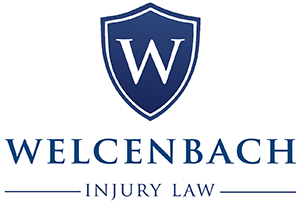Who Can File a Wrongful Death Lawsuit in Wisconsin?
As someone who is considering a wrongful death lawsuit, you are no doubt struggling with intense emotional strain as well as substantial financial fallout as a result of the wrongful death of your loved one. Here we examine what such a lawsuit is as well as who can file a wrongful death lawsuit in Wisconsin.
What Is a Wrongful Death Lawsuit?
According to Wis. Stat. § 895.03, wrongful death is defined as a fatality caused by another person’s or entity’s negligent actions. If the victim had not died as a result of these actions, they could have brought a personal injury lawsuit against the wrongdoer. In essence, the complaint is being made on the deceased person’s behalf to compensate for damages.
A wide range of reasons to file a wrongful death situation exist, such as medical malpractice, slip and fall accidents, car accidents, criminal acts (such as murder, manslaughter, or other crimes), or even promoting improper use of chemicals that could contribute to harm or death.
Who Can File a Wrongful Death Lawsuit?
In many states, the option to file a wrongful death suit is given only to a personal representative of the deceased’s estate. In Wisconsin, however, either the personal representative or a family member is legally able to file a wrongful death lawsuit.
Regardless of who files the wrongful death suit, a hierarchy is considered, and if the court awards compensation for wrongful death, a portion of this is set aside for those at the top of the list. Interestingly enough, someone at the top of the list cannot excuse themselves from compensation to pass the funds to someone at the next level down.
Here is the list of those who can file and the order of their priority in compensation:
- Spouse/domestic partner of the deceased
- Children of the deceased
- Grandchildren of the deceased
- Parents of the deceased
- Grandparents of the deceased
- Siblings of the deceased
Who Cannot File?
Even though spouses and domestic partners appear at the top of the list, this of course precludes any compensation given to someone who may have contributed to their death as is the case in domestic violence or another neglect or intentional act. Additionally, extended family such as cousins, friends of the deceased, and others cannot file.
Damages and Financial Compensation
Damages are awarded to provide compensation for survivors in order to “become whole” or regain the financial stability they experienced prior to the wrongful death. Wisconsin does not award damages as a punitive measure (unless it is a product liability case) but rather to compensate for the survivors’ loss in the untimely death of their family member.
Here are some of the damages that the court can order to be paid out by the wrongdoer:
- Financial losses such as lost wages, income, and potential income lost
- Medical bills and property damage related to the event
- Funeral expenses
- Costs and legal fees associated with the lawsuit
- Loss of inheritance
- Loss of “society and companionship” (with a cap of $350,000 for the loss of an adult family member/partner and $500,000 for the loss of a minor child)
The Statute of Limitations Depends on the Circumstances
You have three years after the date of the person’s death to file your lawsuit for wrongful death, except in cases involving death due to a car accident. The statute of limitations on wrongful death cases involving car accidents in Wisconsin is only two years. This is why it is crucial to speak to a Wisconsin wrongful death attorney as soon as possible. If your case is not filed in time, it will be dismissed by the court.
Contact a Wisconsin Wrongful Death Attorney
When you are dealing with the aftermath of the death of a loved one, time might seem to have lost all meaning. You have so much on your plate to deal with, from hospital bills to funeral arrangements and expenses, as well as simply rebuilding your life without your loved one present. Meeting important deadlines, paying attention to detail, and gathering information might seem overwhelming. These issues are the furthest thing from your mind when you are in pain and dealing with the trauma of a lost loved one.
This is why it is imperative to speak with a Wisconsin wrongful death lawyer as soon as you are able. Your attorney will ensure that important deadlines are not missed and you don’t lose the opportunity for compensation. A skilled attorney can approach the situation with objectivity, working towards a settlement or pushing for a trial if a fair settlement is not possible.
Either way, your rights need to be protected, and the legacy that your loved one left behind should be preserved after their life was cut short so suddenly. Your lawyer can present you with options for your case and help you in your time of need. Contact our office today to request a free consultation.

 Robert Welcenbach is an Owner and Partner at Welcenbach Injury Law, a family-owned personal injury law firm in Milwaukee, WI. With more than 24 years of experience practicing law, he seeks justice for clients in a wide range of legal areas, including car accidents, class actions, dog bites, nursing home abuse, and other personal injury matters.
Robert Welcenbach is an Owner and Partner at Welcenbach Injury Law, a family-owned personal injury law firm in Milwaukee, WI. With more than 24 years of experience practicing law, he seeks justice for clients in a wide range of legal areas, including car accidents, class actions, dog bites, nursing home abuse, and other personal injury matters.